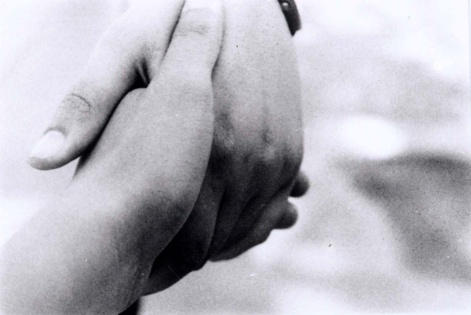
When I first came to the US in 2003 I was surprised to see how few the Muslims were who identified themselves as American. I was even more surprised when it was the Muslim youth born and raised in the US who hesitated to identify themselves as American.
Why? First, I thought it was because the kids had picked up their parent's opinions on American foreign policy and were ashamed to identify themselves as belonging to the world's oppressive super power. But that wasn't it. Was it that they didn't accept American culture and values? That definitely wasn't it: they dressed and talked like their favourite American sport/music/movie celebrity.
It turned out that, for the most part, they hesitated to identify themselves as American because when they did people did not believe them; they did not accept them as American. "But, where are you
originally from?", or "where are your parents from?" inevitably followed their answer.
Still, I was happy to see more and more American Muslims (especially the younger generation) assert their identity. That doesn't mean waving the American flag or celebrating Thanksgiving, but viewing themselves as an integral part of the larger community they live in and realizing their responsibility of bringing a positive change, no matter where they are.
I bring up all of the above because of
this post by Ustadh Suhaib Webb. He discusses a concept that is essential for our (Muslims) understanding of our role in the global community. The idea of a "land of Islam" versus a "land of war" is not applicable in our world today. Unfortunately, such outdated concepts often-time hinder our efforts to truly contribute to our society.
Moreover, this dual identity has an effect within the Muslim community. Many American Muslims see themselves as Palestinian/Persian/Pakistani first, American second, Muslim last.
As a result, many of our Muslim communities are built to serve a particular ethnicity of Muslims. Although the efforts to bridge the gap between different Muslim immigrant communities have been relatively successful; there still remains a huge gap to bridge: the one between "immigrant" and "indigenous" Muslims.
I think
this New York Times article accurately portrays the current situation.
Although I am technically not an "immigrant" Muslim, my interactions have primarily been within the immigrant Muslim community. I was immediately welcomed in. However, I do know from my Chinese-American-Muslim and African-American-Muslim friends that this is not always the case.
It is up to the younger generation of American Muslims to take the initiative and bridge the existing gaps. After all, we don't have the excuse of not speaking the same language or coming from a different culture. No more excuses.
Here are just some ways I could think of,
1. Do not tolerate racism: within yourself, your friends, or your community.
2. Don't wait for the next annual
Humanitarian Day: work with other Muslims and serve the needy (Muslim or non-Muslim). Make it a monthly activity for you and your friends/MSA/youth group/family.
3. Get our of your bubble: Find another local Muslim community from a different 'culture'; attend their events and invite them to yours.
Each Muslim community has so much to learn from the other. Let's take a deep look into ourselves then look around us, extend our arms, and make a change!







